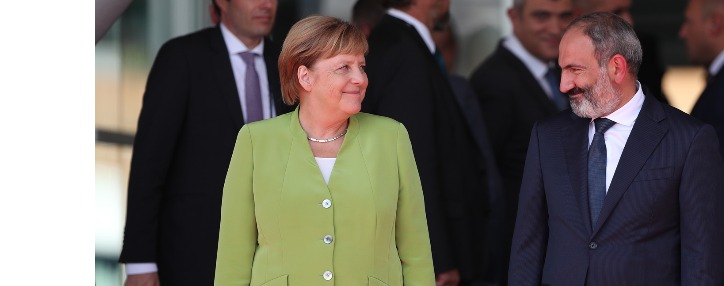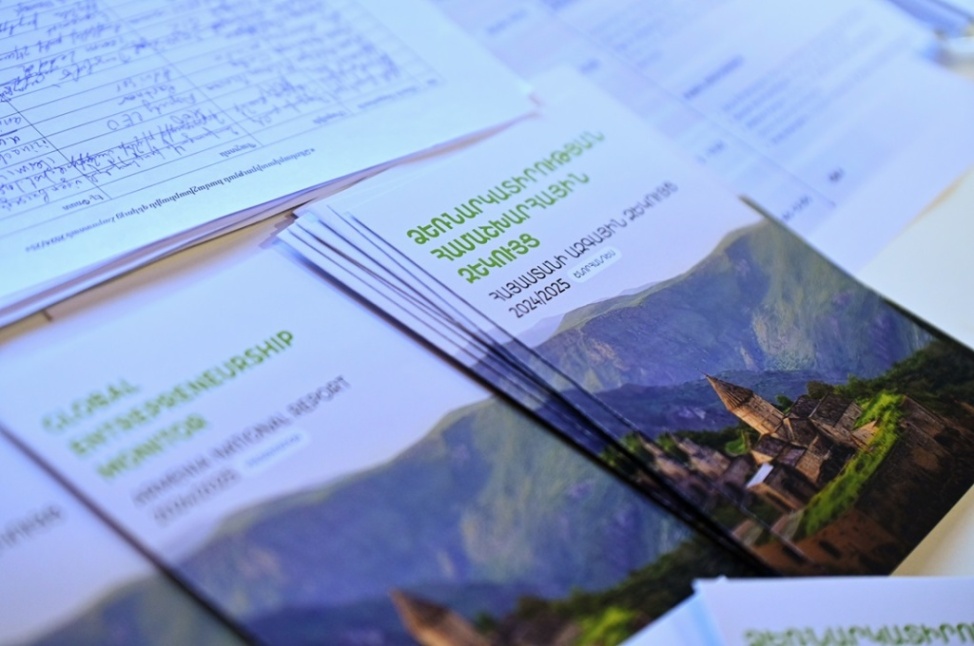Germany ready to help resolve Karabakh conflict, Merkel says
24.08.2018,
19:19
Visiting Germany’s Chancellor Angela Merkel said at a joint news conference with Armenian Prime Minister Nikol Pashinyan on Friday that her country is ready to assume responsibility for the peaceful settlement of the Nagorno-Karabakh conflict.

YEREVAN, August 24. /ARKA/. Visiting Germany’s Chancellor Angela Merkel said at a joint news conference with Armenian Prime Minister Nikol Pashinyan on Friday that her country is ready to assume responsibility for the peaceful settlement of the Nagorno-Karabakh conflict.
She said Germany is a member of the OSCE Minsk Group and that he and Armenia's leader spoke about the benefits of resolving the conflicts. ' It is necessary to resolve this conflict in a good atmosphere and Germany is ready to support Armenia in this matter, " Merkel said.
Merkel has arrived in Armenia today on an official visit from Georgia, the first leg of her regional visit. Tomorrow she is flying to Azerbaijan.
The Nagorno-Karabakh conflict erupted into armed clashes after the collapse of the Soviet Union in the early 1990s as the predominantly Armenian-populated enclave of Azerbaijan sought to secede from Azerbaijan and declared its independence backed by a successful referendum.
On May 12, 1994, the Bishkek cease-fire agreement put an end to the military operations. A truce was brokered by Russia in 1994, although no permanent peace agreement has been signed.
Since then, Nagorno-Karabakh and several adjacent regions have been under the control of Armenian forces of Karabakh. Nagorno-Karabakh is the longest-running post-Soviet era conflict and has continued to simmer despite the relative peace of the past two decades, with snipers causing tens of deaths a year.
On April 2, 2016, Azerbaijan launched military assaults along the entire perimeter of its contact line with Nagorno-Karabakh. Four days later a cease-fire was reached. -0---
She said Germany is a member of the OSCE Minsk Group and that he and Armenia's leader spoke about the benefits of resolving the conflicts. ' It is necessary to resolve this conflict in a good atmosphere and Germany is ready to support Armenia in this matter, " Merkel said.
Merkel has arrived in Armenia today on an official visit from Georgia, the first leg of her regional visit. Tomorrow she is flying to Azerbaijan.
The Nagorno-Karabakh conflict erupted into armed clashes after the collapse of the Soviet Union in the early 1990s as the predominantly Armenian-populated enclave of Azerbaijan sought to secede from Azerbaijan and declared its independence backed by a successful referendum.
On May 12, 1994, the Bishkek cease-fire agreement put an end to the military operations. A truce was brokered by Russia in 1994, although no permanent peace agreement has been signed.
Since then, Nagorno-Karabakh and several adjacent regions have been under the control of Armenian forces of Karabakh. Nagorno-Karabakh is the longest-running post-Soviet era conflict and has continued to simmer despite the relative peace of the past two decades, with snipers causing tens of deaths a year.
On April 2, 2016, Azerbaijan launched military assaults along the entire perimeter of its contact line with Nagorno-Karabakh. Four days later a cease-fire was reached. -0---



